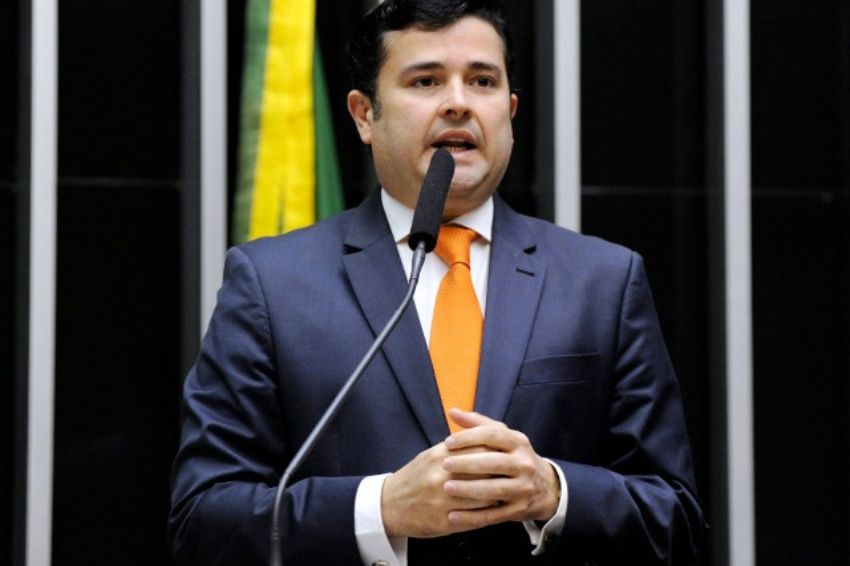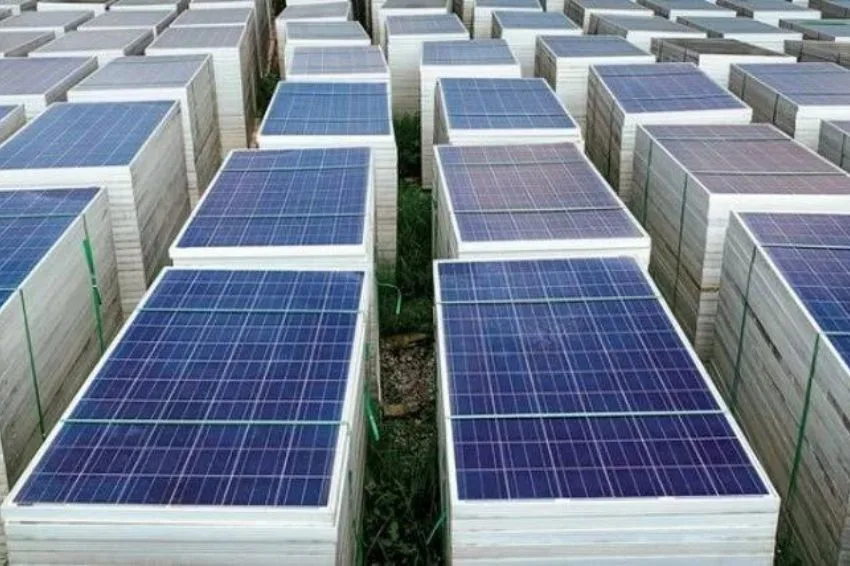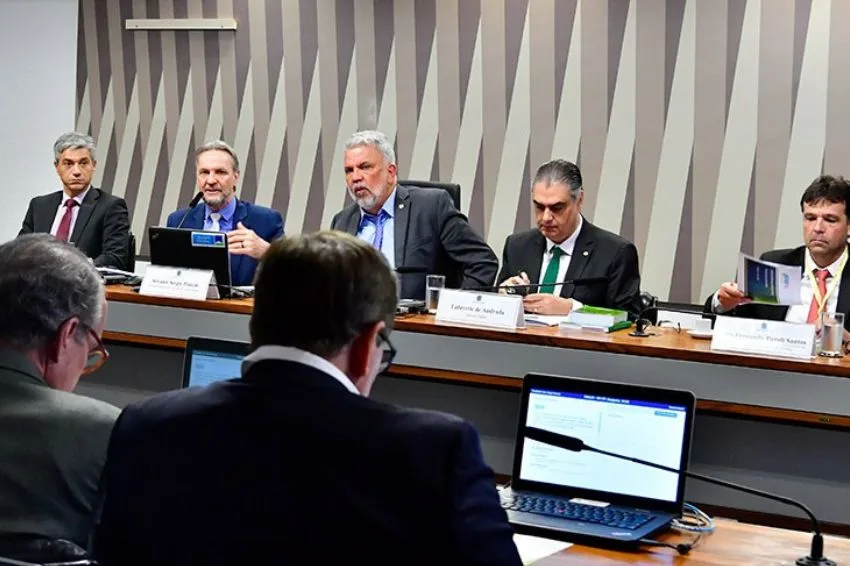In update
A Mines and Energy Committee of the Chamber of Deputies intends to file next Wednesday (24) a request to summon the board and the attorney general of ANEEL (National Electric Energy Agency) so that they can explain what the body's interpretation was in regulating the Law 14,300/2022, which deals with the legal framework for distributed generation in Brazil.
The intention was announced by deputy Eduardo da Fonte (PP-PE), in a public hearing this Wednesday (17) to discuss Normative Resolution No. 1,059/23. The hearing was attended by representatives of various associations and sector entities, without there being a consensus between the parties.
For Pereira, ANEEL confronted what was decided in Congress when regulating the MMGD law (distributed micro and mini generation) and accused the Agency of making pro-distributor decisions. “We start to not understand what the role of the regulatory agency is,” he said.
Second Carlos Alberto Calixto Mattar, Superintendent of Regulation of Electric Energy Transmission and Distribution Services at ANEEL, Law 14,300 is without a “shadow of a doubt” a legal framework of the utmost importance, as it provides more legal certainty and regulatory stability to all investors.
He also stated that it preserves investments made and provides greater predictability of the return on future investments, as well as guaranteeing the consumer's right to generate their own energy and reduce their electricity bills and recognizes MMGD as strategic for national energy policy.
“Despite these benefits that MMGD has, it raises concerns about the network’s capacity in terms of the flow and flow of energy through the transport systems that currently exist. We have to be aware of this possible capacity depletion”, said the regulator.
Tatiane Moraes Pestana Cortes, executive manager of Agent Relations and Regulatory Affairs at ONS (National System Operator), said that the body is looking into the technical issues of MMGD, in order to adapt its processes to make the best use of the energy resource, maintaining the premise of technological neutrality. He also said that the ONS will never be an impediment to the evolution of the Brazilian electricity sector.
“We are aware of the consequences that the advancement of MMGD brings to the operation and this is not a problem for the Operator. We have to adapt to this demand from society, which in fact brings more complexity to operations, but this is a new reality and we will not be an obstacle”, he stated.
Rodrigo Lopes Sauaia, executive president of ABSOLAR (Brazilian Association of Photovoltaic Solar Energy), said that the source is the second largest in the Brazilian matrix, “but when we look at the numbers, it is not yet democratized in Brazilian society”.
He listed several points contrary to REN 1,059, such as the demand charging from low voltage consumers and the billing method B Opting. Sauaia said that the solution to this impasse lies in the approval of Bill 1,292/23, by deputy Lafayette de Andrada (Republicanos-MG).
Additionally, he warned parliamentarians about the difficulty that consumers are having in accessing the distributor network and asked that the ANEEL calculate the costs and benefits of GD. He knows that for this the CNPE (National Energy Policy Council) needs to present the guidelines for this process, something that should have been done in the middle of last year and has not yet happened.
For the Lafayette de Andrada, PL 1,292 is not about providing more subsidies but about enforcing Law 14,300. “The subsidy that GD has impacts 1% on the energy tariff and this subsidy is expected to end gradually over 8 years”.
Hewerton Martins, president of MSL, highlighted that “this is not about changing the law, but the approval of bill 1292/23 is designed for ANEEL to actually comply with what was approved by the National Congress, since the Agency goes beyond the legal system law and its responsibilities”.
“We saw that during the pandemic one of the few sectors that generated jobs and income in 99% of municipalities was solar energy distributed with small and medium-sized companies. Today it is also one of the few alternatives for consumers who invest with their own money in generating energy in their municipality”, he stated.
“Strangely after the publication of Resolution 1,059 proposed by ANEEL director Helvio Guerra, the shutdown of the solar sector, layoffs and job closures happens at a time when there is no pandemic, but rather, Aneel's extrapolation of its duties, advancing on the supreme decision of the national congress. We hope to return to normality, respect for the legal system and safety for consumers with the urgent approval of PL1292/23 in the national congress”, he pointed out.
Also speaking at the public hearing were Marina Meyer Falcão, president of the Minas Gerais OAB Energy Law Commission; Frederico de Araújo Teles, director of Sector Policies at the Ministry of Mines and Energy; Tássio Barboza, Deputy Secretary of Solar Energy at INEL (National Institute of Clean Energy), as well as deputies Beto Pereira (PSDB-MS), Benes Leocádio (União-RN) and Evair de Melo (PP-ES).
Riomar Merino Jorge, regulatory specialist at ABEEólica (Brazilian Association of Wind Energy and New Technologies), in turn, said that the entity supports the regulatory process of Law 14,300 and that a greater incentive for one source cannot cause an imbalance for the other sources.
Someone who also took a stand against PL 1,292, which is being processed urgently in the Chamber, was Ricardo Brandão, executive director of Regulation at ABRADEE (Brazilian Association of Electricity Distributors). He said that the benefit given to DG users is quite significant, harming other energy consumers.
According to him, this year alone there will be R$ 6.3 billion in subsidies for solar sources that each consumer will pay on their bill. But the projection is that by 2045, even if only 50% of the 35 GW of DG connection requests are implemented, it will be R$ 300 billion that will end up in the account of consumers who do not have DG.
Josiani Napolitano, director of Government Relations at Apine (Brazilian Association of Independent Electricity Producers) said that solar has already reached maturity that allows the source to continue its growth trajectory without any subsidy or tax incentive. “Apine is against the proposals to amend Law 14,300 that aim to expand subsidies to DG users”.
The opinions and information expressed are the sole responsibility of the author and do not necessarily represent the official position of Canal Solar.















